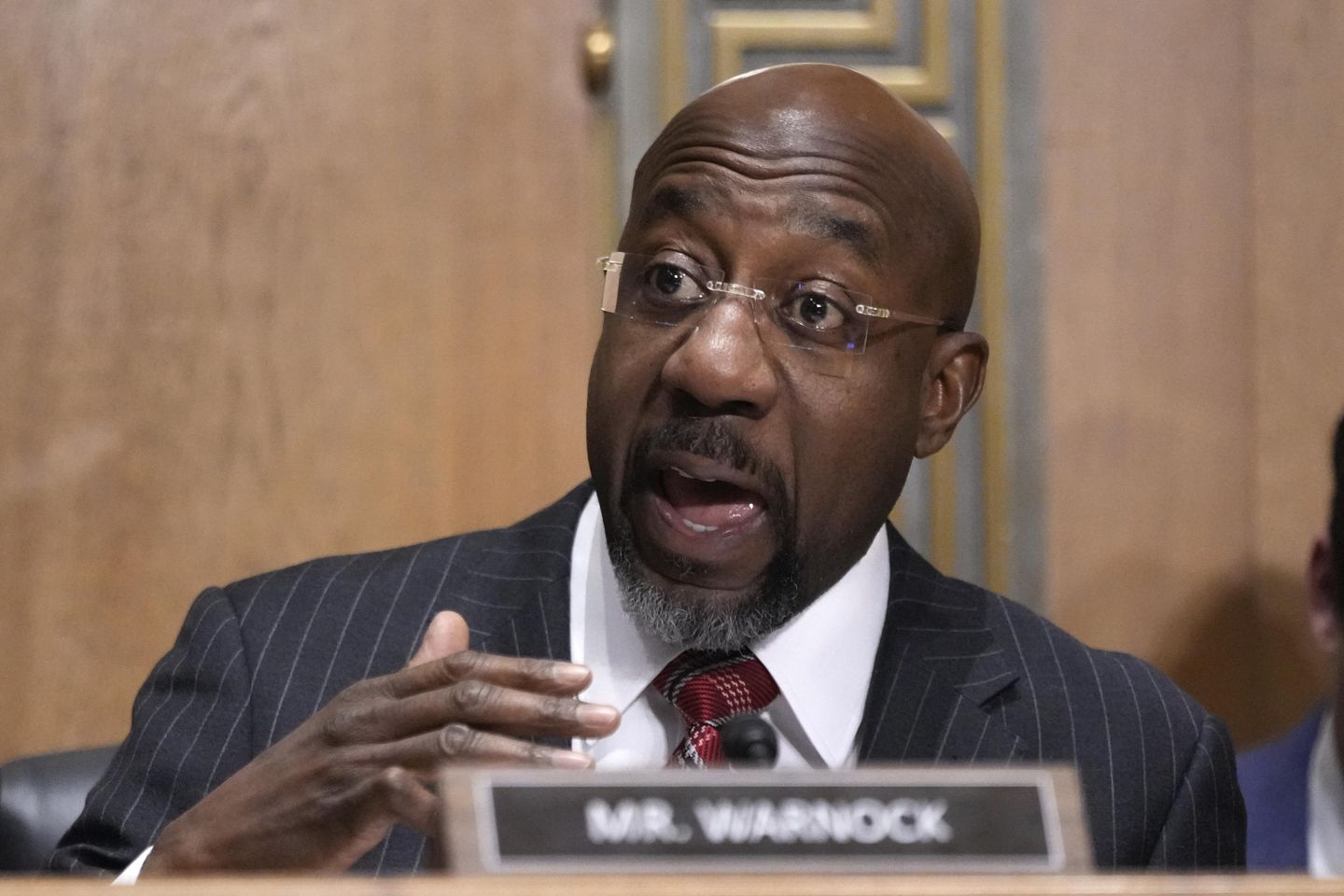
Democratic senators are debating procedural options for averting a government shutdown without having to vote for the Republican stopgap bill.
A day away from Friday’s deadline to keep the government open, Democrats remain almost universally opposed to the GOP stopgap spending bill that passed the House on Tuesday.
The stopgap, known as a continuing resolution or CR, would for the third time extend most fiscal 2024 spending levels and policies, with this latest extension running through the end of fiscal 2025 on Sept. 30.
Senate Democrats prefer a shorter, one-month CR through April 11, which they believe would buy enough time to finish bipartisan negotiations on new spending levels and policies and pass fiscal 2025 appropriation bills.
“We’re this close to getting a bipartisan bill, so why wouldn’t we do that?” Sen. Raphael Warnock, Georgia Democrat, told The Washington Times.
Arizona’s Mark Kelly said he and his fellow Democratic senators support letting appropriators finish their work on the regular dozen spending bills, which a shorter-term stopgap would facilitate. He views supporting the GOP’s six-month stopgap or careening the government into a partial shutdown as a pair of “bad options.”
“We have an opportunity to fund the government in the right way,” he said.
Senate Republicans are moving forward with the CR that runs through Sept. 30, which when combined with the previous two stopgaps Congress already passed for fiscal 2025 creates an effective yearlong CR.
An initial procedural test vote would occur Friday morning unless all 100 senators agree to speed things up.
One idea floated for a potential agreement is letting Democrats vote on their one-month CR as an amendment to the GOP bill.
That would require at least eight Democrats to support the initial procedural vote to reach the 60-vote threshold needed to overcome a filibuster. Sen. Rand Paul, Kentucky Republican, is opposed to the bill, but the other 52 Senate Republicans are expected to back it.
Sen. Tim Kaine, Virginia Democrat, said he would support the procedural vote if there is a guaranteed vote on the one-month CR as an amendment.
However, several other Senate Democrats weren’t ready to commit to that plan because it could ultimately lead to passage of the GOP bill.
If enough Democrats vote for a pair of procedural votes needed to clear a filibuster, a vote on final passage would require only a simple majority, meaning Republicans could pass it on their own.
Sen. Chris Murphy, Connecticut Democrat, said he couldn’t support the procedural vote without a guarantee that the amendment for a one-month CR would be adopted and supplant the GOP’s effective yearlong CR.
“I’m not going to facilitate the passage of a yearlong budget that was written by Donald Trump in order to facilitate his agenda that’s hurting my constituents,” Mr. Murphy said.
While some Senate Republicans, like Appropriations Chair Susan Collins of Maine, had preferred a one-month CR, they’re unlikely to support the Democrats’ amendment because it would lead to a shutdown.
Any changes to the bill would need to go back to the House, which has already adjourned for the week and isn’t scheduled to return to Washington until March 24.
“We’re out of time,” Ms. Collins said.

















